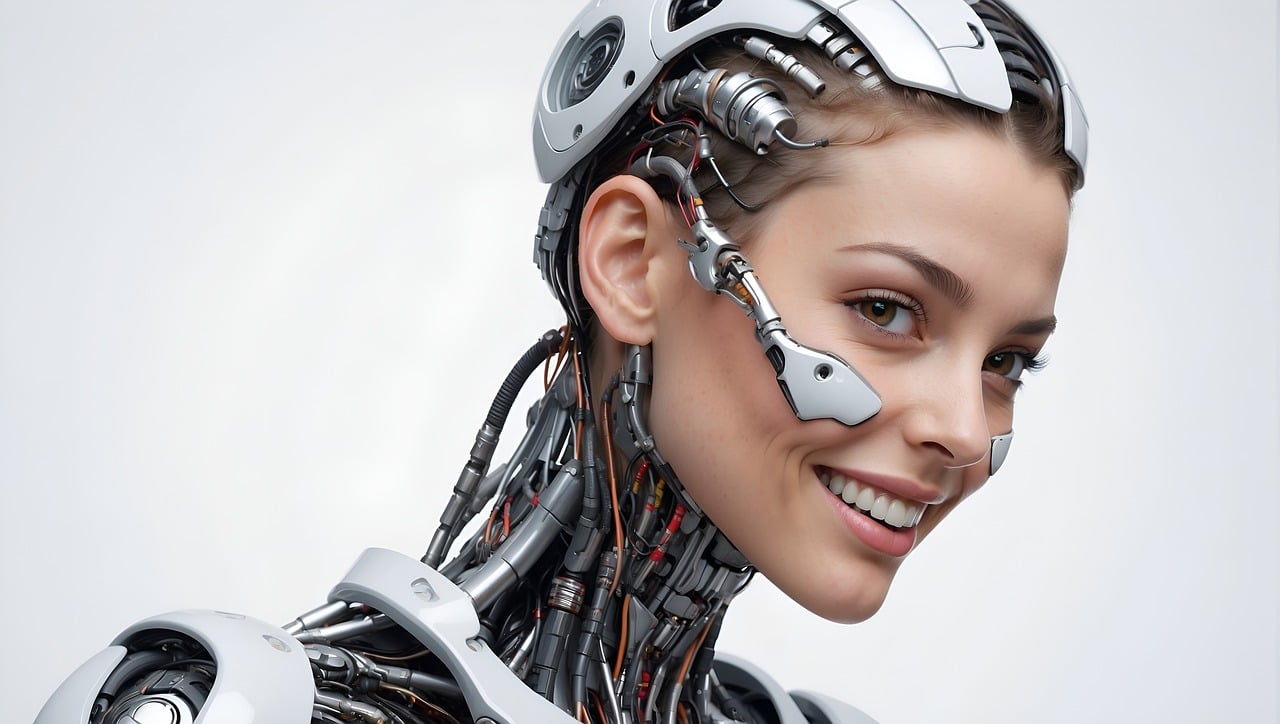How AI is Revolutionizing Your Daily Life
In today’s era of artificial intelligence (AI), what was once confined to the realms of science fiction has become an integral part of our daily lives. AI technology has seamlessly integrated into our homes, vehicles, mobile devices, and workplaces, enhancing productivity, personalization, and convenience. From optimizing your daily commute and health regimen to enhancing your late-night entertainment choices on platforms like Netflix, AI has become an ubiquitous presence in shaping our everyday routines.
This article will explore some of the most common ways that AI-powered devices and services are transforming mundane routines into personalized, automated experiences. From smart speakers that turn your lights on, to fitness apps that design workouts tailored just for you, we’ll cover a range of AI assistants available today to help you get things done and live your best life. Read on to discover how artificial intelligence can simplify and enhance your everyday routines.
Smart Home Devices

Smart home devices powered by AI assistants like Alexa and Google Home are transforming home life with their ability to understand natural voice commands. Simply by speaking out loud, you can now control your home’s lighting, adjust the thermostat, play music, get news updates, and more.
Alexa
One of the most popular smart home devices is the Amazon Echo with Alexa. Alexa can understand requests to turn lights on or off, lock doors, adjust temperature settings, play specific music playlists or genres, set timers and alarms, provide weather forecasts, and answer general questions. With compatible smart light bulbs and switches, Alexa can change the lighting scene in a room based on voice commands. Also Alexa can control and monitor a wide range of smart appliances like refrigerators, washing machines, robot vacuums, and more when connected to compatible brands.
Google Assistant
Similarly, the Google Home smart speaker with the Google Assistant built-in allows for hands-free voice control of smart home devices. You can ask Google to turn on the living room lights, turn up the heat, start the robot vacuum, add items to your shopping list, play relaxing music, and much more. Google Home can also connect to Nest smart thermostats and security cameras for monitoring your home.
Beyond basic voice control, AI assistants are also able to understand context and routines to automate common tasks. For example, you can program Alexa or Google Home to shut off all the lights and lock the doors at bedtime. Or you can set the temperature to automatically adjust when you leave for work in the morning. The AI behind these assistants is constantly learning and becoming capable of even more sophisticated home automation.
With smart speakers and displays located in key areas around your home, AI assistants like Alexa and Google Home are making it incredibly convenient to control devices and appliances through simple voice interactions. This hands-free control frees you from manually adjusting settings and allows you to multi-task more effectively. AI is truly magic for the smart home.
Fitness and Health

AI is revolutionizing the way we approach fitness and manage our health. Instead of generic workout plans, AI fitness coaches can provide personalized guidance based on your fitness level, goals, and preferences. These virtual trainers can even monitor form and provide feedback during workouts.
For example, the Fitbit Coach app utilizes AI to generate dynamic bodyweight workouts personalized to your abilities. The Mirror home gym uses computer vision to count reps, track calories burned, and suggest modifications to improve form.
On the health side, AI-enabled devices can continuously monitor biometrics like heart rate, sleep quality, blood pressure, and more. These stats are crunched by algorithms to provide insights into how daily behaviors impact overall wellbeing. AI assistants can even recommend lifestyle or dietary changes to improve health markers.
With real-time tracking and personalized guidance, AI gives us the power to understand our health and fitness like never before. We no longer have to follow a generic plan and hope for the best. AI coaches tap into data and analytics to offer workouts, health tips, and insights tailored specifically for our bodies and goals. This opens the door to faster progress while reducing risk of burnout or injury.
Transportation

AI and automation are transforming transportation and how we get around. Self-driving vehicles powered by AI promise to revolutionize road travel by taking over the task of driving entirely. Though still undergoing testing and development, self-driving cars have the potential to reduce accidents, ease congestion, and free up commuting time for passengers.
Intelligent trip planning apps are also emerging that leverage AI to optimize travel plans. These apps analyze traffic patterns, public transit schedules, and other data to suggest the fastest and most efficient routes. Some apps can even track your commute time and adapt to provide more personalized recommendations over time. AI-powered trip planning saves time and frustration by taking the guesswork out of navigating to unfamiliar destinations.
With AI, the future of transportation is moving towards being more automated, efficient, and tailored to individual needs. AI tools are automating the routine but essential task of getting around so we can focus on the more meaningful parts of our journeys.
Work and Productivity

Artificial intelligence tools offer numerous ways to boost your productivity and streamline your work. AI-powered calendar apps can analyze your schedule, detect conflicts, and automatically reschedule appointments for optimal timing. They can also suggest productive blocks of time for focusing on important tasks.
Intelligent email tools like SmartReply can generate short email responses for you based on key information extracted from incoming messages. This allows you to quickly handle mundane replies. AI assistants like Google Calendar can also scan your emails to automatically add events, flight bookings, hotel reservations, and other schedule details to your calendar.
Virtual assistants like Siri, Alexa, and Google Assistant allow hands-free control of various work tasks. You can dictate emails and text messages, set reminders, schedule meetings, search the internet, and more using just your voice. This enables you to multitask and minimize time spent on administrative work.
AI support built into common productivity software like Word and Excel can generate relevant suggestions, outline documents, format spreadsheets automatically, and more. This frees you up to focus on higher-level tasks.
Overall, AI-powered tools boost efficiency by automatically handling repetitive, low-value work like scheduling, organizing, formatting, and basic communication. This gives you more time and mental energy to focus on high-impact aspects of your job. With the help of AI, you can work smarter and more productively.
Education

AI is transforming education in incredible ways, providing personalized and adaptive learning experiences that were not possible before. From AI tutors to adaptive learning platforms, education is becoming smarter and more customized.
AI Tutors
One way AI is enhancing education is through AI tutors. These tutors leverage natural language processing to understand students’ questions and provide detailed, customized explanations and feedback. Some AI tutors can even analyze areas where students are struggling and adjust their teaching methods accordingly. This level of personalization helps students learn concepts more effectively.
Adaptive Learning Platforms
AI-powered adaptive learning platforms track student progress and customize lessons and activities to meet each learner’s unique needs. As students work through material, these platforms assess mastery and deliver content and assessments tailored specifically for that student. This allows students to learn at their own pace, spending more time on concepts they find challenging and less on those they’ve already mastered.
Personalized Recommendations
AI education tools can also provide personalized recommendations to help students find the right learning resources. By understanding their strengths, weaknesses, interests and goals, these tools can suggest specific courses, books, videos and activities optimized for that individual learner. This helps students discover the educational content best suited to their needs.
Overall, AI is changing education in major ways, delivering a learning experience that is smarter, more adaptive, and focused on each student’s unique requirements. With the help of AI, students can reach their potential in a deeply personalized way.
Finance

AI is transforming how we manage our finances and bringing automation to tedious financial tasks. Intelligent budgeting tools can analyze your spending habits and create customized budgets that help you save money. With just a few clicks, these apps can categorize your transactions, identify recurring bills, track your subscriptions, and give you insights into where your money is going.
On the security side, banks are using AI to detect fraud and alert customers of suspicious activity. By continuously monitoring transactions and account activity, fraud prevention systems can identify patterns that don’t match a customer’s normal behavior. This has drastically reduced instances of identity theft, unauthorized transactions, and account takeovers. Some banks even use biometric authentication powered by AI, like voice recognition and facial scanning, for an added layer of account protection.
Overall, AI is making finances easier to control. Automated advisors provide personalized investment management, optimizing your portfolio and adjusting it when needed. AI simplifies taxes by finding deductions you may have missed. With intelligent tools to track spending, prevent fraud, grow wealth, and manage finances, AI is delivering convenience and peace of mind when it comes to your money.
Entertainment

Artificial intelligence has transformed entertainment by providing personalized recommendations and interactive experiences.
When it comes to movies and music, AI algorithms analyze your viewing and listening history to suggest new titles you may enjoy. Platforms like Netflix, Spotify, and Pandora all use forms of AI to tailor their recommendations to each user’s unique tastes. This helps people discover new artists, albums, shows, and films that truly appeal to their preferences.
In addition, AI allows for more immersive forms of entertainment through interactive games. Video games increasingly utilize AI to generate responsive NPCs, enemies, and environments. This makes games feel more dynamic as the AI adapts to the player’s actions in real-time. Voice-controlled assistants like Alexa also allow users to engage in AI-powered games using just their voice.
The application of AI in entertainment marks a major shift toward personalized, adaptive experiences. Music, movies, and games can all cater specifically to an individual thanks to the predictive capabilities of artificial intelligence. This creates a more engaging entertainment experience overall.
Shopping

AI is revolutionizing the way we shop by making the process faster, easier, and more personalized. Two key ways AI is enhancing shopping experiences are through visual search and virtual shopping assistants.
Visual Search
Visual search allows you to take a photo of an item and instantly find where you can buy it or similar products online. Retailers like Target, Walmart, and IKEA have adopted visual search so you can snap a pic of a piece of furniture or clothing and find available options to purchase. Visual search uses AI to analyze the colors, patterns, and shapes in the photo and match it against product catalogs. This makes shopping more seamless by letting you instantly find what you want.
Virtual Stylists and Shopping Assistants
AI-powered virtual stylists and shopping assistants provide personalized recommendations and advice as you shop. Clothing retailers like Stitch Fix use algorithms to get to know your style and size preferences, then suggest items you’ll love. Voice-activated assistants like Amazon’s Alexa allow for hands-free shopping by having a conversation to help narrow down your preferences. With chatbots and virtual stylists, shopping feels like you have your own personal aide.
AI makes the retail experience feel custom-fitted just for you. With visual search, virtual stylists, and smart assistants, shopping is easier and more efficient.
Conclusion
AI tools have already begun transforming our daily lives in incredible ways, from device automation to personalized fitness and education. This post recapped some of the key ways AI is revolutionizing our day to day:
- Smart home devices like Amazon Echo and Google Home that can control appliances, adjust lighting, play music, and more through voice commands.
- AI fitness apps and wearables that provide personalized workout and nutrition recommendations based on your goals.
- Self-driving cars that can transport us without human intervention.
- AI writing tools that can help generate content, emails, and other text.
- Virtual tutors and adaptive learning programs that customize education to students’ needs.
- Robo-advisors that provide automated financial planning and investing.
- Recommendation systems that learn our preferences and suggest entertainment options.
- AI shopping tools that track prices, find coupons, and compare products to recommend the best deals.
The future of AI promises even more exciting developments that will make our lives easier. As algorithms continue improving, AI could handle more complex tasks like planning our schedules, assisting with cooking and household chores, providing healthcare advice, and more. While AI may not fully automate our lives anytime soon, it’s clear these technologies will be integrated into more and more of our daily routines. The possibilities are endless for how AI can enhance our productivity, entertainment, convenience, and overall quality of life.
Keep on reading here



